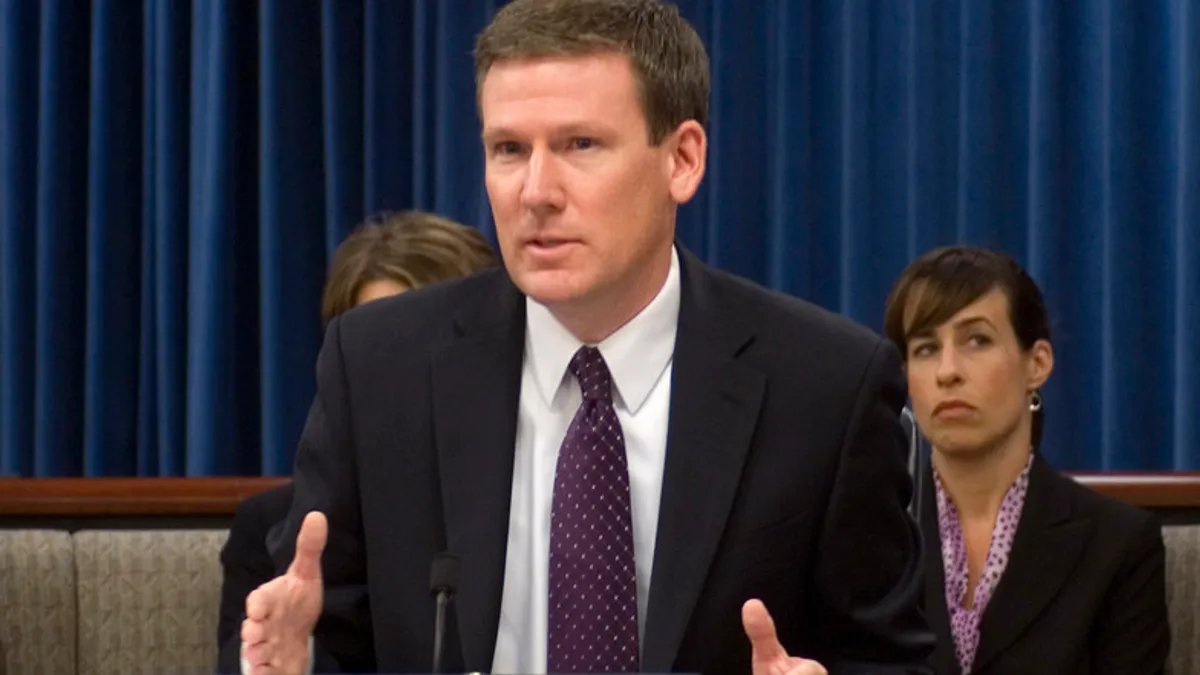Dive Brief:
- FERC Commissioner Tony Clark has posted a statement responding to the U.S. Supreme Court's decision to uphold federal authority over demand response markets, suggesting regulators take a closer look at how demand response is compensated now that the jurisdictional issues have been settled.
- Clark's response seemed to pan the Court's decision, writing that he prefers a straightforward reading of law and that he views "the majority opinion as representative of the current Court’s drift away from textualism."
- Clark, who is stepping down from the commission in June, said experts have criticized the demand response compensation regime set by FERC and that the fervent fight to preserve it from demand response providers proves how lucrative it is for them.
Dive Insight:
Commissioner Clark, the last Republican left at the commission, has announced he will not seek reappointment when his term ends in June. But on his way out, the regulator has penned comments about the Supreme Court's demand response decision last week which give some insight into his views on law and politics.
“To hear some of the analyses of this week’s Supreme Court decision in FERC v. EPSA, one would think the Court stepped in to save demand response technology, future grid reliability, clean energy, and perhaps the very planet itself," he wrote. "In reality, the case was never about whether demand response technology would exist and play a role in the grid of the future. No person or party has seriously suggested demand response is not an important part of our electric grid."
"Those who seek to categorize people as supporters (or not) of demand response based on their position in this case are playing the 'you are with us or against us' card. It is utter nonsense."
Clark went on to note that he is a believer in a "straight-forward reading of statutes" and said the Court's decision is "a step towards greater federal authority, but just a step; a further obfuscation of the line between retail and wholesale, state and federal."
Clark has indicated he will be stepping down in the summer, so it is unclear what role he will play in demand response regulation before then. But he closed his comments with a call for a reconsideration of the compensation scheme FERC enacted, which set demand response payments at the same rate as generation.
"I would encourage the Commission to turn its attention towards a thorough assessment of the underpinnings of a compensation regime that continues to be widely panned by market experts," he wrote.
Clark was not the only commission member to issue a statement.
Chairman Norman Bay wrote, much more briefly, that the decision "means that consumers will continue to see the significant benefits of demand response, which enhances competition in the markets, reduces wholesale prices, and helps makes the grid more reliable."














